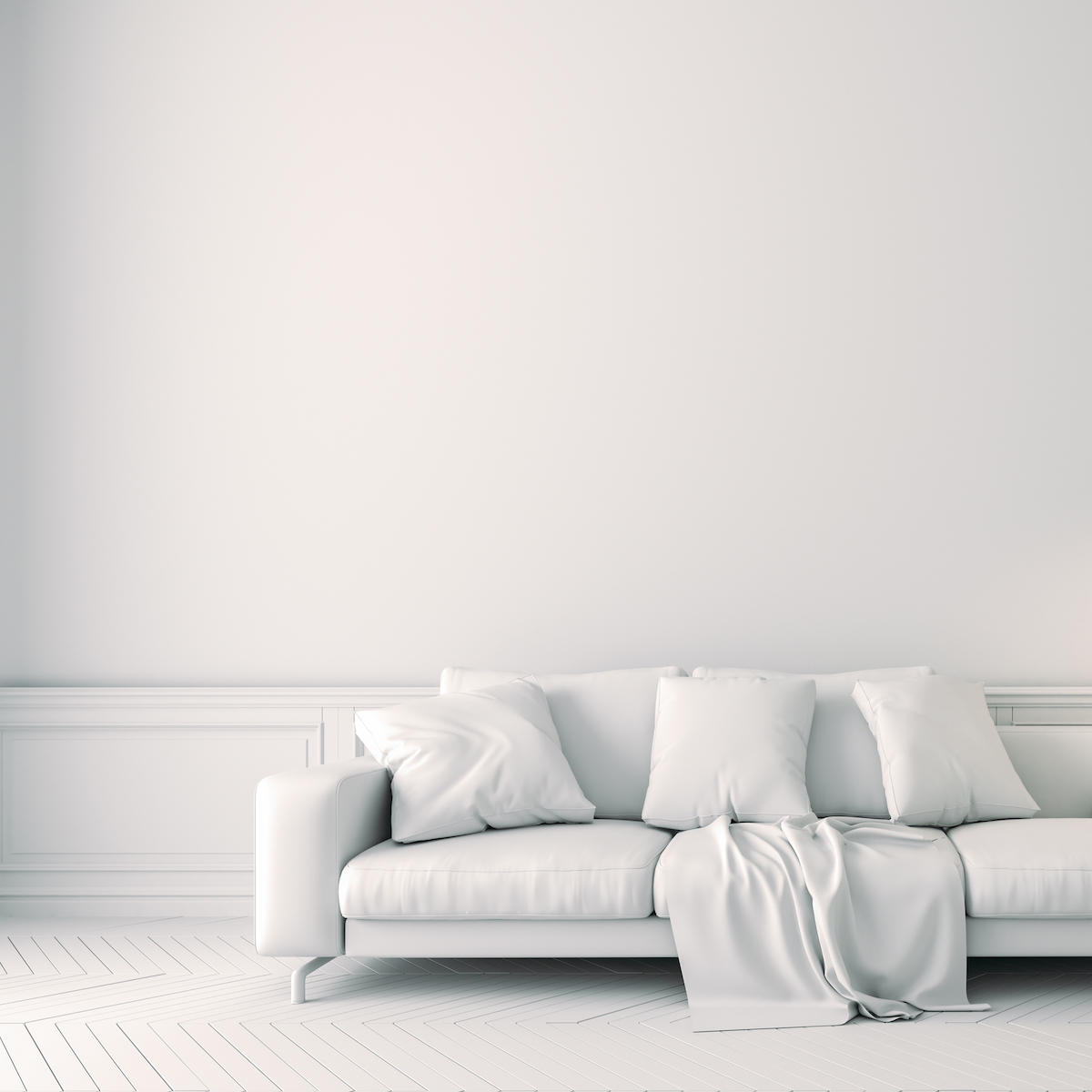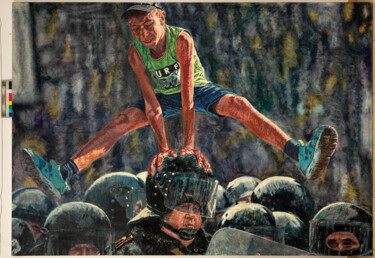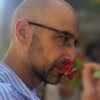


Fateci sapere se volete vedere altre foto di questa opera d'arte!
- Retro del lavoro / Lato del lavoro
- Dettagli / Firma / Superficie o struttura dell'opera d'arte
- Opera d'arte in situazione, Altro...
I Don't Jump On Command, I Command The Jump (2025) Pittura da Anton Terziev
Maggiori informazioni
- Confezione (Imballaggio in scatola o cartone) Tutte le opere sono spedite con cura protetta e assicurata, con un vettore premium.
- Controllo Controlla il tuo ordine fino alla consegna al compratore. Verrà fornito un numero di tracking per seguire la spedizione in tempo reale.
- Scadenza Consegna in tutto il mondo in 3-7 giorni (Stima)
- Dogana non inclusa Il prezzo non include le tasse doganali. La maggior parte dei paesi non ha tasse di importazione per le opere d'arte originali, ma potresti dover pagare l'IVA ridotta. Le tasse doganali (se presenti) devono essere calcolate all'arrivo dall'ufficio doganale e saranno fatturate separatamente dal vettore.
Maggiori informazioni
- Certificato di autenticità online tracciabile I certificati di autenticità possono essere verificati online in qualsiasi momento scansionando il codice dell'opera d'arte.
- Certificato di quotazione d'artista Gli esperti studiano il lavoro e la carriera di un artista. In seguito stabiliscono un valore medio, in modo indipendente e affidabile, del prezzo. Il valore medio dei prezzi colloca l'artista in una fascia di prezzo per un determinato periodo. Gli esperti possono essere invitati a stabilire una stima più precisa per un'opera in particolare.
Maggiori informazioni
Pagamento sicuro al 100% con certificato SSL + 3D Secure.
Maggiori informazioni
Acquista una licenza per utilizzare questa immagine per il tuo sito web, la tua comunicazione o per vendere prodotti derivati.
Usage: Licenza internet
| 1030 px | ||

|
1500 px |
| Dimensioni del file (px) | 1030x1500 |
| Utilizzazione in tutto il mondo | Sì |
| Utilizzazione su un multi-supporto | Sì |
| Utilizzazione su un qualsiasi tipo di supporto | Sì |
| Diritto di rivendita | No |
| Numero massimo di stampe | 0 (Zero) |
| Prodotti destinati alla vendita | No |
Scarica subito dopo l'acquisto
Quest'immagine è disponibile per lo scaricamento con una licenza.: puoi scaricarli in qualsiasi momento.
Restrizioni
Tutte le immagini di ArtMajeur sono opere d'arte originali create da artisti, tutti i diritti sono strettamente riservati. L'acquisizione di una licenza dà il diritto di utilizzare o sfruttare l'immagine sotto i termini della licenza. È possibile effettuare piccole modifiche come il riquadro o la rifocalizzazione dell'immagine in modo che si adatti perfettamente ad un progetto. E' tuttavia vietato apportare qualsiasi modifica che possa danneggiare l'opera originale nella sua integrità (modifica delle forme, distorsioni, taglio, cambio di colori, aggiunta di elementi, ecc.), a meno che non venga prima ottenuta un'autorizzazione scritta dall'artista.
Licenze personalizzate
Se il tuo utilizzo non è coperto dalle nostre licenze standard, contattaci per una licenza personalizzata.
Banca d'immagine d'arte-
Opera d'arte originale (One Of A Kind)
Pittura,
Olio
su Tela
- Dimensioni Altezza 57,1in, Larghezza 76,8in
- Incorniciatura Questa opera d'arte non è incorniciata
- Categorie Quadri sotto i 20.000 USD Figurativo Politica
The painting’s focal point is a youthful figure leaping over a heavily armored officer. The choice to place this figure mid-action—hands pressing atop the helmet—lends the painting a kinetic energy. Terziev halts a fleeting instant, reminiscent of photojournalistic “freeze-frames,” yet renders it in a painterly style. This tension between photo-like immediacy and the expressiveness of oil paint gives the scene both documentary clarity and a certain timelessness.
The tight framing around the main subjects emphasizes the confrontation. In the background, a phalanx of similarly clad officers recedes into an indistinct crowd, hinting at a broader social or political apparatus. The dynamic pose of the young figure—legs extended, arms bearing weight—cuts diagonally across the canvas, drawing the viewer’s eye from the figure’s face to the helmet below. This diagonal thrust is a compositional technique often employed to heighten drama, recalling, for instance, the angled bodies in Eugène Delacroix’s “Liberty Leading the People.” Terziev appears to favor a saturated palette: the vivid greens of the protester’s shirt and the deep blacks of the riot gear contrast sharply. The background’s muddled, smoky hues evoke tension and turmoil. Despite this gloom, the central figure seems illuminated—whether literally or symbolically—standing out against the massed uniforms. This painterly contrast underscores a classic artistic trope: the individual’s bright presence opposing a darker, more uniform collective force.
At first glance, the painting comments on the power dynamic between state authority (the officer in riot gear) and the individual (the agile figure vaulting over him). The act of physically leaping above the officer’s head becomes a metaphor for transcending imposed limits or commands. It suggests a reversal of typical power structures: the officer, usually the figure of control, is relegated to a support—albeit involuntarily.
The subject’s youthful appearance adds another layer of resonance. Depicting a young individual in direct, physical interaction with law enforcement draws upon an established tradition of protest imagery, where youth movements have historically galvanized political change. This generational tension recalls iconic photographs from the 20th and 21st centuries, in which young protesters often become the faces of revolution or societal critique.
The painting also alludes to the idea of the human body as a site of protest. The choice to vault, rather than to push or to attack, speaks to a form of resistance that is acrobatic, creative, and emblematic of personal freedom. It contrasts with the rigid, disciplined body language of the officers. In this sense, the work resonates with a lineage of politically charged performance art and photography, wherein gestures of dance or athleticism become statements of defiance.
While Terziev’s style is distinct from the Romantic or Baroque, the thematic of state power versus individual vulnerability recalls Francisco Goya’s **“The Third of May 1808.”** There, too, we see a focus on the human cost of political strife. Goya’s unflinching look at violence resonates in Terziev’s more contemporary depiction of confrontation, even if the latter is less about overt bloodshed and more about tension and symbolic subversion.
More directly, the painting aligns with 20th- and 21st-century traditions of politically engaged art—think of works by artists such as Banksy or Ai Weiwei, who fuse bold imagery with pointed social critique. Terziev’s piece, however, remains firmly in the realm of painting, bringing to mind large-scale compositions that historically served as calls to action or documentation of collective struggle.
Although the painting captures a realistic moment, the brushwork seems deliberately visible—especially in the musculature of the figure and the textured rendering of the riot gear. This blend of realism and expressionistic brush handling imparts an emotive quality. The painting avoids the polished sheen of hyperrealism, instead embracing a slightly raw surface that mirrors the rawness of civil strife.
As a large-scale work, the painting presumably envelops the viewer, magnifying the tension between protester and authority. Large canvases historically lend a monumental aura to their subject matter—an effect that can transform a single leap into a sweeping allegory of societal power struggles.
I Don’t Jump On Command, I Command the Jump” stands as a compelling example of contemporary political painting. Through a vividly captured, acrobatic gesture of defiance, Anton Terziev provokes reflection on youth, power, and the state’s response to public dissent. The painting’s dynamic composition, saturated color contrasts, and expressive brushwork imbue it with a timeless urgency. In art historical terms, it joins a lineage of works that memorialize moments of societal upheaval—echoing both the immediacy of photojournalism and the grandeur of historical painting.
By framing the tension between the individual and the forces of authority in a single, frozen leap, Terziev not only documents a poignant political instant but also suggests the broader, universal spirit of protest that transcends geographic and temporal boundaries. The painting thus resonates as a contemporary emblem of resilience—both a snapshot of a specific socio-political climate and a more enduring symbol of the human impulse to rise above constraints.
Temi correlati
Anton Terziev, un artista bulgaro contemporaneo, è un maestro nell'uso dell'ironia tagliente come strumento artistico per interagire con vari soggetti contemporanei. Le sue opere sono caratterizzate da un profondo uso dell'iconografia che trasmette un immaginario crudo e critico. Nel suo repertorio artistico, Anton intreccia abilmente elementi di posta in gioco, abilità e narrazione, dando vita a un'arte figurativa contemporanea che porta un tocco raffinato di commento sociale, umorismo e messaggi sulla condizione dell'artista.
Anton Terziev trae ispirazione da due fonti distinte. In primo luogo, la sua arte nasce spesso da eventi della vita reale, svolgendosi intorno a lui in un modo che innesca il suo processo creativo. In secondo luogo, la sua immaginazione gioca un ruolo fondamentale nel suo lavoro, permettendogli di creare immagini vivide e stimolanti. Ognuna delle sue creazioni è guarnita con sottili elementi della cultura pop, estratti da film e libri. In ogni pezzo è incorporata una narrazione, un metatesto che arricchisce l'esperienza dello spettatore senza sopraffarlo, poiché Anton crede che la buona arte comunichi in modo dolce ma efficace.
Ciò che distingue il lavoro di Anton è il suo costante impegno nel lasciare al pubblico un senso di meraviglia senza limiti. Le sue opere invitano gli spettatori a impegnarsi in un dialogo con l'arte, incoraggiandoli a interpretare, mettere in discussione ed esplorare le narrazioni che presenta. Scegliere il titolo perfetto per le sue opere è una sfida che spesso affronta traendo ispirazione dalla letteratura, dal cinema o dalla musica.
La carriera di pittore di Anton Terziev è strettamente intrecciata con la sua identità di scrittore. Le sue idee prendono forma sotto forma di dipinti e oggetti d'arte, riflettendo i suoi diversi talenti. Oltre alla pittura, dà vita alla sua visione artistica attraverso performance, riprese cinematografiche e design, dimostrando un approccio sfaccettato all'espressione creativa.
-
Nazionalità:
BULGARIA

- Data di nascita : 1977
- Domini artistici: Opere di artisti professionisti,
- Gruppi: Artista professionista Artisti Bulgari Contemporanei







